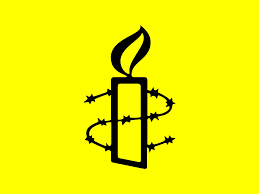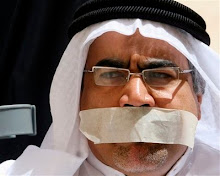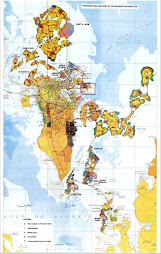Amnesty International Report 2009- Bahrain
The authorities failed adequately to investigate allegations of torture and other ill-treatment of detainees. Government critics were briefly detained
 and several websites were closed down. One person was executed. The government indicated it would decriminalize certain publishing offences, reduce legal discrimination against women and introduce other reforms.
and several websites were closed down. One person was executed. The government indicated it would decriminalize certain publishing offences, reduce legal discrimination against women and introduce other reforms.BackgroundThere were renewed, violent protests in March and April by members of the majority Shi’a population against what they alleged was discrimination, especially by the police and security forces, and the stalling of political reforms initiated by the King in 2001 and 2002. One policeman was killed and scores of people were arrested. Nineteen faced trial. Thirteen others who were charged with arson and rioting were among a group pardoned by the King in July but still detained at the end of the year. They were reported to have refused to sign official documents authorizing their release because they considered that all charges against them should be dropped unconditionally.
"A number of websites were closed because they contained articles criticizing the royal family..."
International scrutiny and legal developmentsBahrain’s human rights record was examined in April under the UN Human Rights Council’s system of Universal Periodic Review.
The government made significant human rights commitments, including to establish a national human rights institution, withdraw reservations made when Bahrain ratified certain human rights treaties, reform family and nationality laws, and adopt new legislation to protect women domestic workers and lift restrictions on the press.
Torture and other ill-treatmentDetainees held in connection with violent protests in the villages of Karzakhan and Demestan in March and April alleged that they were tortured and otherwise ill-treated by police. They said they were held incommunicado for a week during which they were made to stand for excessive periods, blindfolded and beaten.
■Fifteen people arrested in December 2007 and accused of burning a police car and stealing a weapon alleged that they were tortured. Five were sentenced to between five and seven years’ imprisonment by the High Criminal Court in July; six were sentenced to one year in prison but were pardoned by the King; and four were acquitted. Among those acquitted was Mohammad Mekki Ahmad, aged 20, who was detained incommunicado for 12 days at the Criminal Investigations Department in Manama, where he alleges he was tortured by being suspended, beaten and subjected to electric shocks. A medical report, requested by the High Criminal Court and submitted to it in April, noted that some of the defendants had marks on their bodies which might have been caused by torture. The government failed to order an independent investigation into the torture allegations.
Freedom of expressionThe government proposed to amend the 2002 Press and Publications Law to remove imprisonment as a penalty for offences such as criticizing the King and “inciting hatred of the regime”. The Shura (Consultative) Council added amendments in May. All the amendments were submitted to the House of Representatives.
To mark the 6th anniversary of Guantanamo Bay on Friday 11 January 2008, Amnesty International in Bahrain organise an action.© Amnesty InternationalIn June, Abdullah Hassan Bu-Hassan was detained for three days in connection with his writings in The Democrat, published by the Democratic National Action Society. The same month, seven contributors to the Awal website and al-Wifaq Islamic Society’s newsletter were briefly detained and accused of “inciting hatred and insulting the regime”. A number of websites were closed because they contained articles criticizing the royal family and the government.
In November, the Interior Minister was reported to have announced that Bahraini nationals, including parliamentarians and NGO members, would be required to seek advance authorization before attending meetings abroad to discuss Bahrain’s internal affairs, and that those who failed to do so could be imprisoned or fined.
Death penaltyA Bangladeshi national, Mizan Noor Al Rahman Ayoub Miyah, convicted of murdering his employer, was executed in August.
In December, Bahrain abstained on a UN General Assembly resolution calling for a worldwide moratorium on executions.
Amnesty International visitsAn Amnesty International delegate visited Bahrain in October and met government officials, parliamentarians, human rights activists, journalists, former detainees and lawyers. In November an Amnesty International delegate attended a follow-up meeting hosted by the Bahraini government on the implementation of the recommendations of the UN Universal Periodic Review session in April.







